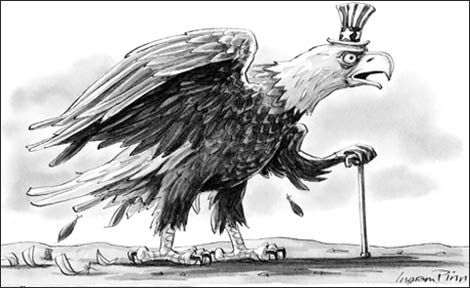
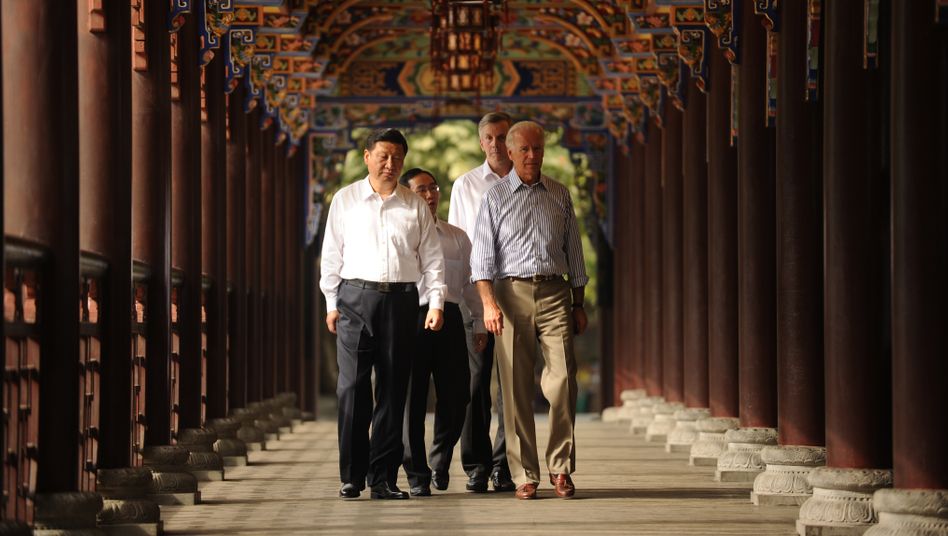
Yan Xuetong, a professor of the Institute of International Relations at Tsinghua University, and also one of the world’s Top 100 Global Thinkers by the American journal Foreign Policy, talked with the journalists of Spiegel about how the international balance of power will change, and which countries will determine the future direction of the world. Many German media seldom make interviews with Chinese scholars, which highlights the importance of this experience.
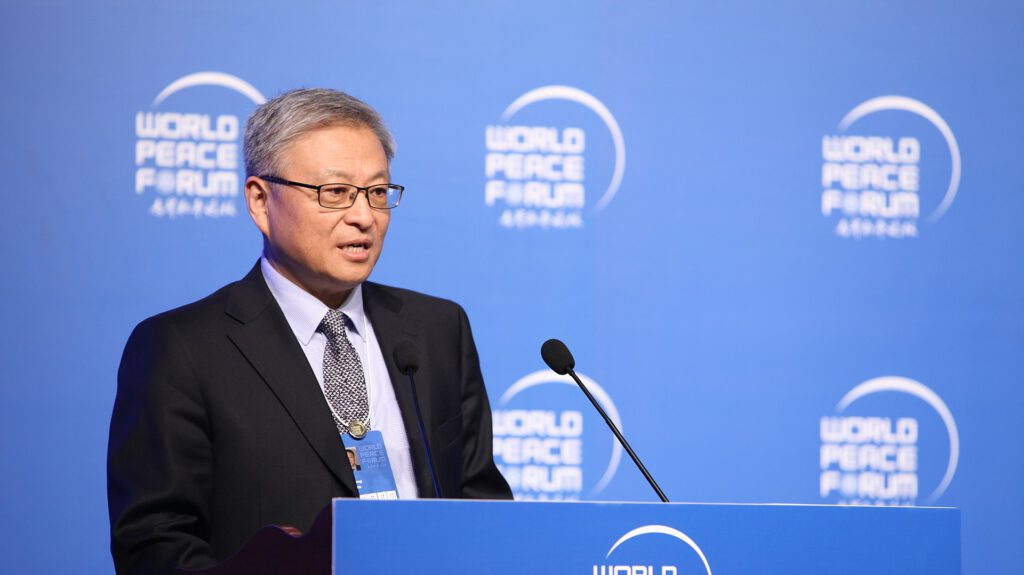
The Trump era ended in turmoil. Does this mean that he has damaged the image of the United States on a global scale?
Trump has completely destroyed the diplomatic credibility of the United States. The unilateralism he pursued meant that the United States ignored the interests of other countries and even its allies. How do you trust such a country when you never know what the United States will do next? The presidential election in the United States, the riots in the Capitol, and most importantly, Trump’s response, all accelerated this trend. Trump’s Twitter account was even blocked. This clearly shows that the United States will not tolerate disagreeing opinions.

But China “404” thousands of social media accounts every day, and Twitter is just a private company. Every user who uses its service agrees to its commercial use terms. If the company suspends an account, this is not government action.
My daughter said that the US’s Twitter and China’s Weibo are completely different. But Weibo is also a private company, if you want to delete an account, you can only execute it with the government’s permission. If your personal account is blocked, it obviously reflects the government’s wishes, at least This is my understanding. So, it is the same in the United States. If Joe Biden and Nancy Pelosi protest, then Twitter should not dare to block Trump’s account.
Hardly any American politician knows China’s national leadership better than Biden. What influence does their friendship have on the direction of Sino-US relations?
The personal relationship between the two leaders has a very limited influence on foreign policy. During his state visit to China, no American president received the same grand hospitality as Trump had during his visit to China, and even hosted a special banquet for him in the Forbidden City. This is usually unimaginable. But this has not changed Trump’s position on China.
Biden has repeatedly stated that he wants to repair the relationship with the traditional allies of the United States. The expression in Chinese is to form a united front against China.
Biden is very likely to try to do this, which is undoubtedly in the interests of the United States. But I think he will seek an alliance on a certain issue rather than a comprehensive united front. As for the South China Sea issue, he may seek consensus with Japan and the Philippines. On the issue of WTO reform, the United States may cooperate with Europe.
Can Europe independently exert its influence in Asian affairs?
Currently, the German and French governments have shown their determination not to stand in line. They will choose partners very carefully, and even establish different alliances according to different topics. Take the new crown virus as an example, Europe is promoting medical cooperation with China, but the United States is finding the origin of the virus.
The main task of the new US president’s greatest concern is to reunite this divided country. How do you think Biden will effectively use his limited diplomatic resources?
East Asia will remain the focus of US foreign policy. Trump’s foreign policy team is composed of laymen without professional knowledge, while Biden’s team is composed entirely of experts. They know that the competition between China and the United States is mainly in cyberspace, not sea, land, or airspace. China and the United States are competing for the advantages and market share of digital technology. East Asia currently has a larger digital market than Europe, and digital technologies are concentrated in China, Japan and South Korea. These three countries will determine the future economic direction.

American political scientist John Mearsheimer said: China and the United States are the dominant countries. Even if ideological differences are aside, conflicts are inevitable. Does the current development prove his correctness?
I also support the realistic view of this power relationship and support his basic hypothesis, even if I do not agree with his conclusion. Competition, hostility, and confrontation must be at the core of relations between great powers. For realists, this is commonplace. My disagreement with Mearsheimer lies in the question of whether competition between China and the United States will lead to war. He believes that competition will lead to war. And I believe that nuclear weapons make it impossible for a direct war between China and the United States. In the digital age, even the possibility of proxy wars is getting smaller and smaller. The core of Sino-US competition is not ideological expansion, but technological superiority. I predict that this will be a peaceful competition under tension.
If the conflict between China and the United States is about technological superiority, how do you explain China’s expansionary actions in India, Bhutan, South China Sea and Taiwan in 2020?
If a rising power is to benefit from geographical expansion, it must occupy a vast territory. British colonialism or the expansion of the United States from east to west-this shows the significance of geographic expansion. In the technological age, a terrain gain of ten to twenty kilometers is meaningless. How can geopolitical strategy be misinterpreted as provoking border conflicts? This is nonsense.
From a geostrategic point of view, if China builds a village on the border with Bhutan, this may be trivial, but it is not the case for Taiwan.
Taiwan has nothing to do with geopolitics, but with separatism. The meaning of Taiwan to China is as same as Northern Ireland to Britain.
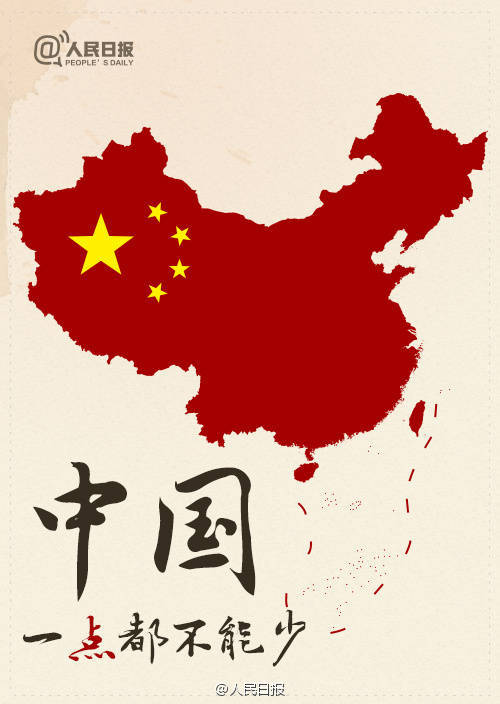
The islands in the South China Sea are far from China’s land. It can be argued that what China is doing in Asia is actually catching up with the United States. It is equivalent to repeating what the United States has done in North America, Central America, and South America in the past century: that is, doing whatever it wants in a sphere of influence defined as its own.
Many people believe that the ownership of an island depends on its distance from the mainland. If this is the case, why can France own islands in the Pacific, and why does Britain own islands off the coast of Argentina? China first formally made a declaration of sovereignty over China’s South China Sea islands in 1947, and has actually controlled sovereignty over these islands since the Qing Dynasty at the latest. Most ASEAN countries were not formed until after the First or Second World War. Therefore, your claim is not supported by historical evidence at all.
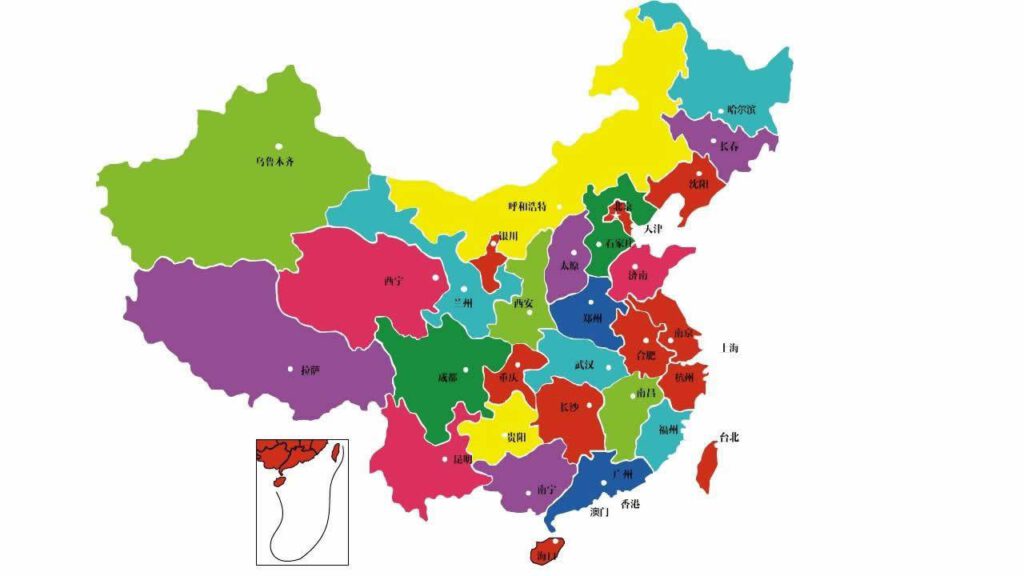
In 2041, we will compete with each other in the digital field.
Compared with regional security, network security has become more and more important. The grown-up generation Z has spent more time online than in real life offline. Eight hours of sleep and sixteen hours of waking, more than half of the time is spent on the Internet. This is our future.
Will there be two separate digital fields, one dominated by China and the other by the United States?
This is very possible. In general, the Internet will become more and more fragmented, and more and more countries will build their own systems. This has actually happened. We just talked about the Zoom meeting service. However, when I have meetings with French people, they don’t use this software. Even Russians or Iranians don’t use this conference software. They are worried about being monitored by American intelligence agencies, and I guess they are also worried about the Chinese.
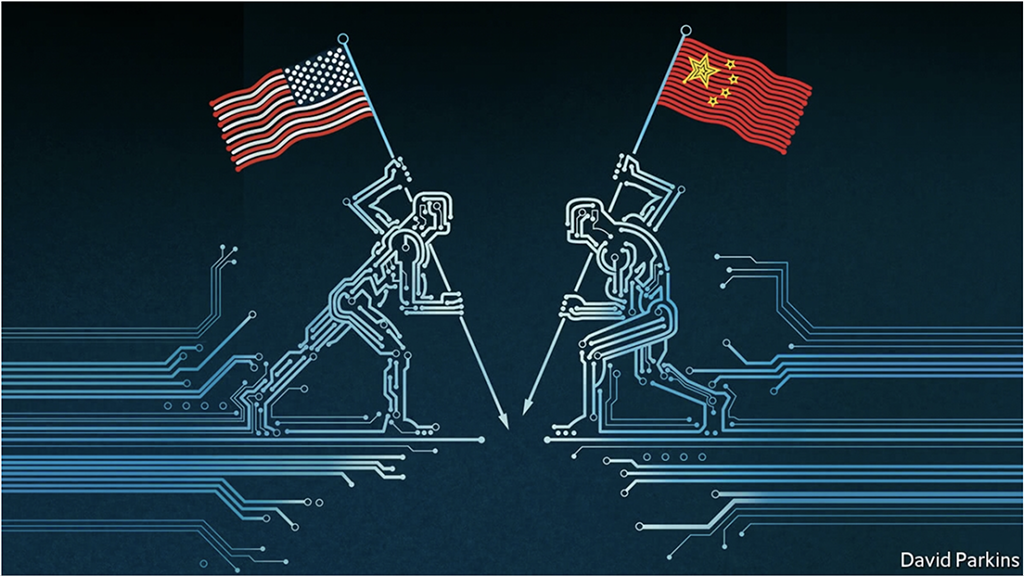
People have different views on different digital spaces. China successfully contained the new crown pandemic, but according to surveys, China’s global reputation plummeted in 2020. How do you explain?
After the Cold War, the United States became the only superpower and the richest country in the world. This is why many people still believe that the United States is correct in all respects. However, now China’s economic growth rate has surpassed that of the United States, and China is much more effective in controlling the new crown than the United States, so people have begun to have different views on China. Your achievements determine your authority.
If so, China should accept broad recognition. The survey results show that the opposite is true.
China is still significantly weaker than the United States in many aspects, such as technology, innovation, wealth, education, and of course the military. China cannot replace the United States as a model for the world. In addition, our political system is very different from other countries. People say, “Hey, wait a minute, your system may only be a temporary success. Will we really believe it because of the success of an event?” So People are still hesitating. If the world is to believe in China, then China must continue to achieve lasting success.
Links for further reading:
https://weibo.com/yanxuetongthu?refer_flag=1005055013_&is_all=1
https://en.wikipedia.org/wiki/Yan_Xuetong
https://www.sohu.com/a/225715571_100118311



